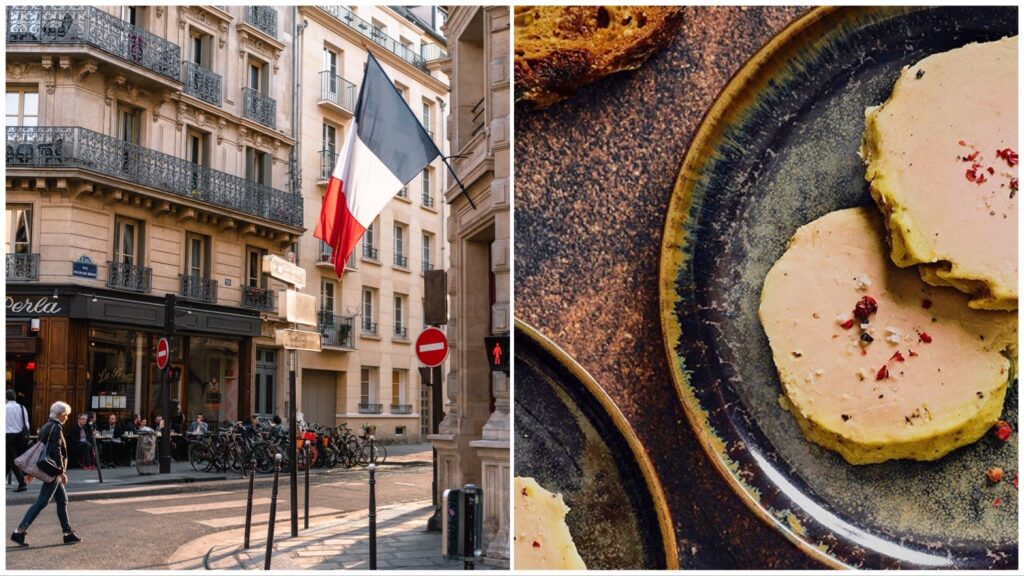Updated July 21, 2021. Parisian cultivated meat startup Gourmey is producing a more ethical foie gras. Many consider cultivated meat to be preferable to farmed meat, as it involves growing protein from a small number of animal cells in a lab.
Gourmey just completed a $10 million seed funding round with high profile investors including Air Street Capital and Point Nine, in addition to the European Commission and state-owned investment bank Bpifrance.
Much like other producers of cultivated, cultured, or “lab-grown” meat, the company also cultivates its foie gras in large tanks known as bioreactors. Gourmey collects stem cells from a single fertilized egg, meaning that the process is not cruelty-free—but is incredibly low-impact.
According to Markets and Markets, the rapidly growing cultured meat sector could be worth $20 million by 2027, while consulting firm Kearney predicts that lab-grown products could make up 35 percent of the $2 trillion global meat market by 2040.
Price parity is the biggest obstacle for the cultivated meat industry, while taste and texture are its biggest selling points. Because of the smooth texture of traditional foie gras (without the grain of steak or chicken), it is relatively simple to cultivate, while the high price tag of the original means Gourmey’s ethical alternative will be able to reach price parity much sooner.
“We want to show that innovation and tradition can go hand in hand and lead us to a more ethical and sustainable world. Foie gras is also a good flagship product to show the potential and interest of cultured meat, because it is one of the most controversial animal products in the world,” says a Gourmey spokesperson.
Why Is An Ethical Foie Gras Needed?
Traditional foie gras—made from duck or goose liver—is popular for its rich and buttery taste. French law even protects its consumption as a crucial part of the country’s cultural heritage and cuisine. The unique dish remains popular as a high-end delicacy, and today the global market is worth approximately $2 billion per year.
Farmers “produce” foie gras with repeated force-feeding, or gavage, which swells the bird’s liver to 10 times its healthy size. This practice is widely condemned for its unusual degree of cruelty—along with its decadence—comparable to how the popularity of fur, veal, and ortolan has plummeted in recent years.
“More and more people are saying that they are uncomfortable with the idea of eating foie gras, particularly because of force-feeding. Our cultivated foie gras makes it possible to do without this controversial practice and to reconcile a part of the population with this monument of French gastronomy,” says Gourmey’s spokesperson.
Foie gras production in France fell significantly overall since 2015 after being severely impacted by several different strains of avian flu and changing global attitudes towards the practice. Seventy-five percent of French people would prefer a more ethical version of the controversial dish, if available, as per a poll carried out by YouGov.
“Foie gras is going through an existential crisis,” says Gourmey co-founder Nicolas Morin-Forest, as reported by Bloomberg. “We will be essentially unleashing the full foie gras potential and detangling the product from the controversy.”
“The ambition is that in many places cultivated foie gras not only will be the best option, but it will be the only option,” adds Morin-Forest. So far, feedback on the brand’s product has been overwhelmingly positive, including validation from a Michelin starred chef.
Production Bans and “Faux Gras”
In the UK, a cross-party group of MPs has urged ministers to ban the import and sale of foie gras nationwide. While the production of foie gras is currently illegal in Britain, the country continues to import hundreds of tonnes of the product every single year.
The UK would join India, the first and only country in the world to ban the importation of the controversial delicacy. Australia, Brazil, Israel, Argentina, and several EU countries including Norway, Poland, Turkey, and Germany have already banned production.
In the U.S., the state of California banned production in 2012 after introducing legislation in 2004. New York City, one of the biggest markets for foie gras nationwide, has also agreed to ban production from 2022. Meanwhile, gourmet chef Alexis Gauthier has introduced a plant-based version, faux gras, which combines walnuts, lentils, and beetroot. Gaia Brussels also produces an ethical faux-foie gras, available in tins.
Gourmey plans to produce additional cultivated meats including duck magret, turkey breast, and chicken nuggets in the coming years. The first products from the company’s pilot factory could potentially be on the market by the end of 2022.
Editor’s note: Since publication, LIVEKINDLY corrected this article. While the Bpifrance does benefit from public funding, it makes investments independently of the French government.


